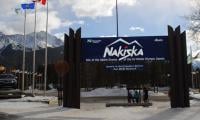PPP’s biggest challenge in Sindh
One of the biggest challenges the PPP is facing in Sindh, its stronghold, is not from the joint opposition – Grand Democratic Alliance (GDA) and PTI – but form within its rank and file, which has now widen and reached a point where even party Co-chairman Asif Ali Zardari looks worried, trying hard to retain party's position.
The PPP may emerge as single largest party in Sindh but is likely to lose ground. Ever since the election date was announced, the party is facing differences over ticket distribution and seats adjustments, which resulted in the breakup of some of party's stalwarts.
The opposition GDA and PTI led by two strong Pirs, Pir Pagaro and Shah Mahmood Qureshi along with some strong influential families, is taking full advantage from the situation and if the PPP leadership is unable to resolve its differences soon it may lose quite a few of its seats. GDA and PTI are now joined by the MMA.
However, the factors, still favouring PPP in Sindh, are its traditional vote bank which is still loyal to the party and considered it as the party of Zulfikar Ali Bhutto and Benazir Bhutto, its grassroots organisational network, absence of any alternate party and lastly, the Benazir Income Support Programme which provides financial support to over two million families.
After the assassination of Benazir Bhutto, her trusted aides like Naheed Khan, Dr Safdar Abbasi, Munawar Abbasi and others quit after been sidelined, but the real setback came when Sindh interior minister Dr Zulfiqar Mirza, who led anti-MQM operation in Karachi, revolted against Zardari and levelled direct allegations against him. He has now been joined by his wife Dr Fehmida Mirza and son Hasnain Mirza. They were followed by Nizamanis from the same area, who had been PPP's supporters since 1970s, and the party now finding difficulties to regain Badin.
The PPP also faced problems in Jacobabad, but Zardari overcame the differences with Shabbier Bijarani and Saleem Jan Mazari. Bijarani became the first elected MNA of 2018 elections as unopposed.
Latest in the long list of those disgruntled PPP leaders who had either left or are silent were the strong Mahesar group of Dadu. They have now joined the PTI.
With PPP's strong faces likes Ali Nawaz Shah, Shahid Bhutto, Sattar Rajpar, Abdul Khaliq Bhurt, Mohammad Ali Sheikh have either quit the party and contesting against it or silently providing support to the rival candidates, Zardari will not only be facing a serious challenge in the elections but may also face more after July 25 in the formation of Sindh government.
The PPP started its campaign with some disadvantages. Its strong leaders like Nisar Khuhro and Manzoor Wasan had been disqualified. Besides, it also took the party days to resolve differences between Manzoor Wasan and Qaim Ali Shah over awarding ticket to Nafisa Shah instead of the 2013 winner, Nawab Wasan. In the end, Wasan agreed to contest on a provincial seat and support Nafisa, but certainly after getting 'certain assurances' in the future setup.
While the PPP us already in complete disarray in other provinces and not confident of winning 10 to 12 seats outside Sindh, decline in number of the National Assembly here would also weaken Zardari's bargaining position in case of a hung Parliament.
Therefore for the first time, Zardari along with Qaim Ali Shah, Murad Ali Shah and some others is desperately trying to repair the damage. He has made the last such ditch efforts to prevent the Makhdoom of Hala, Makhdoom Jamil-uz-Zaman, to withdraw some of his candidates against the PPP in areas of his influence. While PPP leaders claimed success with Makhdooms, one still awaits for a formal announcement from the Makhdoom House.
Sources say the Makhdooms have serious complaints against the former chief minister as well as against the attitude of Faryal Talpur. The last meeting between Makhdoom Jamil and the two Shahs was held in Karachi, two days back, which was a follow-up of Zardari and Makhdoom Jamil-uz-Zaman.
On the other hand, Makhdoom Jamil-uz-Zaman also received a message from Pir Pagaro and Shah Mahmood Qureshi for a joint platform and the future political setup in Sindh, in case they are able to form the government.
PPP chairman Bilawal Bhutto Zardari's tour of Sindh last week certainly improved the party’s chances but he has handed over the decisions of 'intra party' conflicts to Zardari, as the sources say, in his private meetings he do admit mistakes and blunders committed by the party in handling some of these differences.
The results of 21 National Assembly and particularly 44 provincial seats in Karachi could be a game changer for the anti-PPP forces in the formation of Sindh government. If GDA and PTI manage to get enough seats in rural Sindh to form grand a coalition government in the province, the results of urban Sindh would be decisive.
The PPP in the past hardly faced difficulties in formation of Sindh government and even when they formed coalition with MQM, they were in a position to form government on its own. On the contrary, whenever anti-PPP parties joined hands and form the government, they looked to some outside help in reaching the simple majority. Let see what happens on July 25 and during the process of forming the government.
The writer is a senior columnist and analyst of GEO, The News and Jang.
Twitter: @MazharAbbasGEO
-
 Shocking Details Emerge In Martin Short’s Daughter Katherine's Death Investigation: 'Kept To Herself'
Shocking Details Emerge In Martin Short’s Daughter Katherine's Death Investigation: 'Kept To Herself' -
 Yerin Ha On Stepping Into The Spotlight In Bridgerton Season Four
Yerin Ha On Stepping Into The Spotlight In Bridgerton Season Four -
 Nakiska Ski Area Avalanche Leaves Youth Unresponsive, Second Skier Escapes Unhurt
Nakiska Ski Area Avalanche Leaves Youth Unresponsive, Second Skier Escapes Unhurt -
 Igor Komarov Missing In Bali: Seven Foreign Suspects Arrested In Kidnapping Probe
Igor Komarov Missing In Bali: Seven Foreign Suspects Arrested In Kidnapping Probe -
 'I Swear' Director Kirk Jones Says Bafta Broadcast Mishap Failed Tourette’s Advocate
'I Swear' Director Kirk Jones Says Bafta Broadcast Mishap Failed Tourette’s Advocate -
 Yogurt Shop Murders Solved: 1991 Austin Cold Case Finally Linked To Serial Killer
Yogurt Shop Murders Solved: 1991 Austin Cold Case Finally Linked To Serial Killer -
 Iran Tensions Rise As Trump Says He Is 'not Thrilled' With Nuclear Negotiations
Iran Tensions Rise As Trump Says He Is 'not Thrilled' With Nuclear Negotiations -
 Where Is Calvin Klein's Wife Kelly Klein Now After Divorce And Fashion Fame?
Where Is Calvin Klein's Wife Kelly Klein Now After Divorce And Fashion Fame? -
 Kourtney Kardashian’s Role As Stepmother Questioned
Kourtney Kardashian’s Role As Stepmother Questioned -
 Neil Sedaka Dies At 86 After Hospitalisation In Los Angeles
Neil Sedaka Dies At 86 After Hospitalisation In Los Angeles -
 'Lizzie McGuire' Star Robert Carradine's Reason Of Death Laid Bare
'Lizzie McGuire' Star Robert Carradine's Reason Of Death Laid Bare -
 Lisa Rinna Breaks Silence After Recent Reunion With Andy Cohen: 'I've Pissed Him Off'
Lisa Rinna Breaks Silence After Recent Reunion With Andy Cohen: 'I've Pissed Him Off' -
 Savannah Guthrie Mom Update: Unexpected Visitors Spark Mystery Outside Nancy's Home
Savannah Guthrie Mom Update: Unexpected Visitors Spark Mystery Outside Nancy's Home -
 Elle Fanning Shares Detail About Upcoming Oscars Night Plan With Surprise Date
Elle Fanning Shares Detail About Upcoming Oscars Night Plan With Surprise Date -
 Demi Lovato Spills Go-to Trick To Beat Social Anxiety At Parties
Demi Lovato Spills Go-to Trick To Beat Social Anxiety At Parties -
 Benny Blanco Looks Back At The Time Selena Gomez Lost Her Handrwritten Vows Days Before Wedding
Benny Blanco Looks Back At The Time Selena Gomez Lost Her Handrwritten Vows Days Before Wedding



